Head: Marina Montresor
Activities
The lab contains equipment and infrastructure used for the study of the functional and taxonomic diversity of marine plankton. In particular, in this laboratory analyses are carried out on the taxonomic and molecular diversity of plankton samples collected at the Long Term Ecological Research site MareChiara in the Gulf of Naples as well as elsewhere, in the frame of participation in regional and global projects. Experimental approaches focus on the physiology and life cycles of marine microalgae and on the feeding behaviour of zooplankton.
Systems for experimentation
- Light- and temperature-controlled walk-in incubator and incubators of different volume for in vivo experiments with phyto- and zooplankton.
- Optical system for video footage of zooplankton organisms.
- Plankton wheel for experimentation with phyto-, micro- and mesozooplankton.
Analysis
- Quantitative analysis of marine phytoplankton and zooplankton.
- Preparation of phytoplankton cultures and their morphological and molecular characterization.
- Phylogenetic analysis.
- "Metabarcode" analysis of marine plankton with Next Generation Sequencing approaches.
Instrumentation
- Stereoscopes and optical microscopes
- Microscope with epifluorescence illumination and digital cameras to take photographs and movies.
- Zooscan with related software.
- Camera System for video-registration of zooplankton movement.
- Area equipped for the isolation of cultures and experimentation (laminar flow hood, microscopes for cell isolation, fluorimeter).
- Molecular Laboratory equipped for DNA extraction, PCR, DNA electrophoresis, preparation for NGS sequencing.
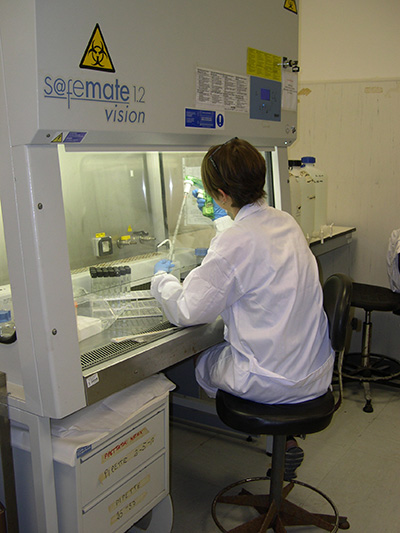
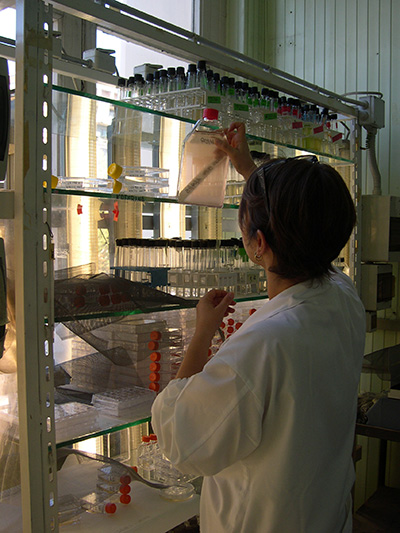
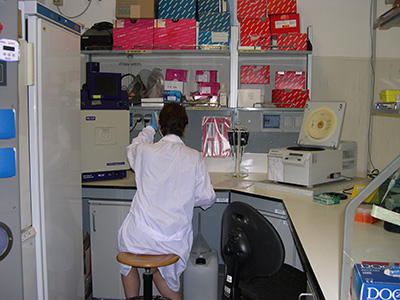
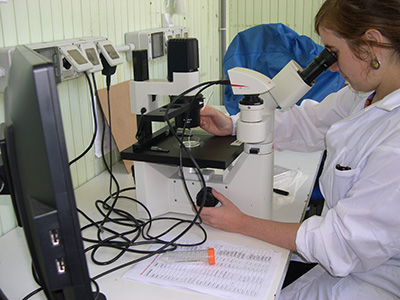
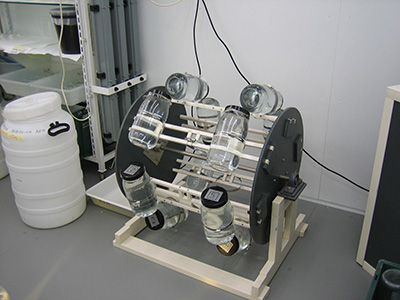
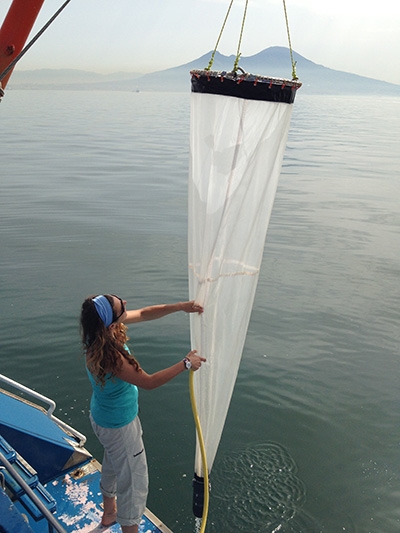
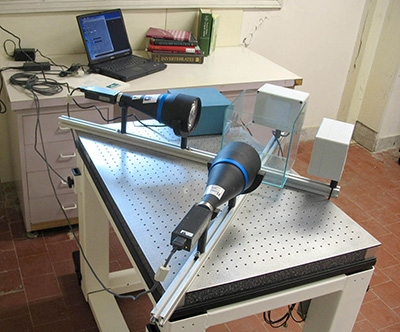
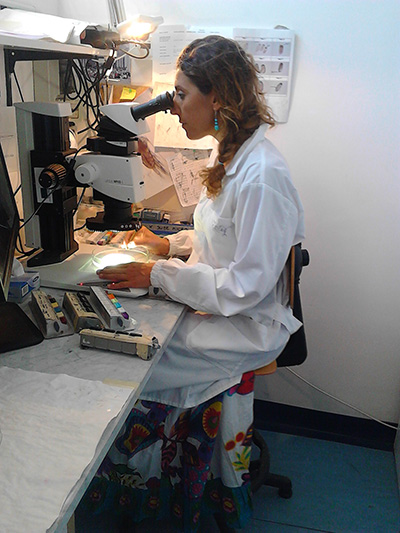
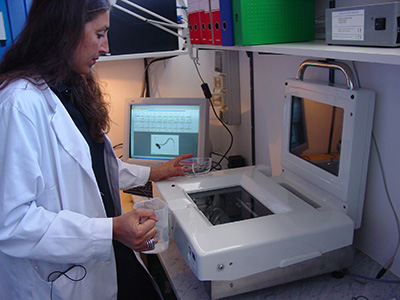
Reference: Maria Costantini
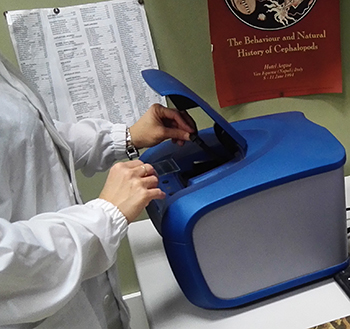 The Laboratory of Marine Genomics and Epigenetics is aimed at developing novel approaches for the study of genomes of marine organisms by applying multidisciplinaty approaches.
The Laboratory of Marine Genomics and Epigenetics is aimed at developing novel approaches for the study of genomes of marine organisms by applying multidisciplinaty approaches.
It encompasses approaches for the study of epigenetic modifications to study the evolution of diversity and adaptative capabilities of organisms.
The Lab includes areas equipped for molecular biology and genomic and proteomic analysis.
Systems for experimentation
- Facilities for molecular analysis applied to the study of genomes of marine organisms.
- Systems for the morpho-functional characterization and genome analysis.
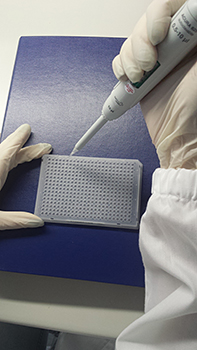 Analysis
Analysis
- Genomic approaches to study genome organization in marine organisms.
- Transcriptomics.
- Genomic analysis of the functioning of marine organisms and systems.
- Gene expression (Real Time qPCR, Western Blot).
- Proteomic approaches to study epigenetic modifications (metilation, de-metilation, acetylation, histone and chromatine modifications, etc.).
- Proteomic approaches (antibodies) to identify epigenetic modifications induced by evolution and interaction of organisms with the environment.
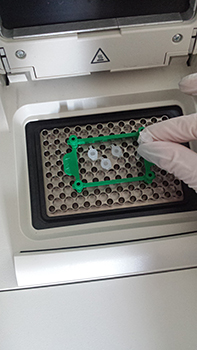 Equipments
Equipments
- Electrophoresis, DNA and proteins.
- PCRs including gradient.
- Scanners for micro-arrays and gene expression.
Coordinator: Francesco Paolo Patti
Activities
In the Laboratory of Integrative Taxonomy of Marine Organisms the activities are based on the analysis of classic taxonomy, phylogeny and comparative phylogeography of marine organisms by means of a multidisciplinary integrated approach (morphological, molecular, cellular and ecological). Following the main activities:
- Sample sorting, identification and counting in ecological and monitoring projects (e.g. Marine Strategy).
- Expert identification of organisms using traditional and advanced morphological and molecular methods (including preparation and deposition of genetic and ecological vouchers).
- Extraction and storage of DNA from different organisms (seaweeds and marine invertebrates tissue).
- RNA extraction from different organisms (seaweeds and marine invertebrates tissue).
- Extraction of secondary metabolites.
- Mini-gel electrophoresis and digital documentation.
- PCR amplification of DNA.
- Molecular cloning of target DNA segments (plasmid preps, restriction and PCR analysis).
- Real-Time fluorescent-based polymerase chain reaction.
- DNA barcoding.
- Terminal Restriction Fragment Length Polymorphism.
- DNA sequencing of fragments (in collaboration with SZN Molecular Biology and Bioinformatics Unit).
- Analysis of DNA sequences including the reconstruction of phylogenetic trees.
Systems for the experimentation
- Dedicated lab protocols.
- Bioinformatic systems analysis: 1) study of nucleotide variability (ad-hoc open source software for metadata analysis); 2) decomposing morphotypes forms into size and shape by geometric morphometric methods.
Analysis
- Analysis of DNA sequences including the reconstruction of phylogenetic trees.
- Analysis of the morphological variability and the genetic polymorphism.
- Analysis of allele frequency and genotype distribution.
- Analysis of terminal restriction Fragment Length Polymorphism.
- Preparation of samples for morphological analysis (using dedicated buffer solutions for microscope observations - Stereomicroscope and Scanning Electron Microscope) and molecular analysis (cryopreservation, standards and RNAlater fixatives for tissue preservation).
Equipment
- Stereomicroscope.
- Vibratome.
- Rotavapor.
- Chemical fume hood.
- Laminar flow hood.
- Mini-Gel horizontal electrophoresis systems.
- Refrigerated Bench-top Centrifuge.
- Spectrophotometer "Genequant Pro Classic".
- PCRs (Techne- Euroclone).
- RTPCR BIO RAD Opticon 2.
- Incubator for cell cultures.
- Analytical balance.
- Temperature controlled water bath (5l, +30°C/+120°C).
- Bench-top vortex mixer with general purpose head.
- Vertical laboratory autoclave and steam sterilizer.
- Laboratory Ice Machine.
- Liquid nitrogen dewars (5l+30l).
- Vertical Ultrafreezer -86°C.
- Vertical Freezers -20°C.
- UVP BioDoc imaging workstations for gel documentation and fluorescent imaging.
- Dedicated computer for phylogenetic reconstruction and data mining.
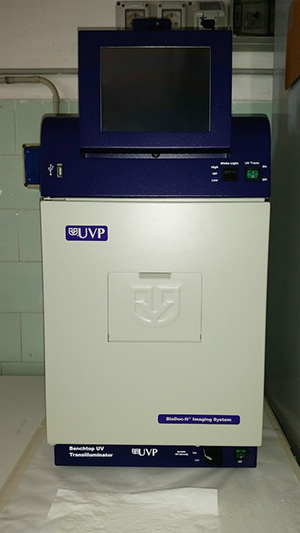
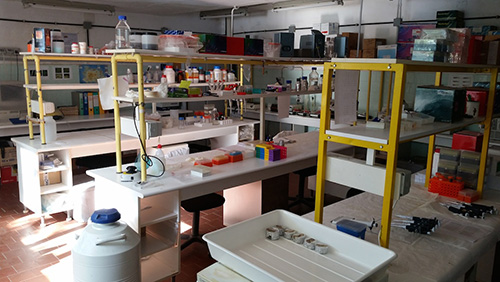
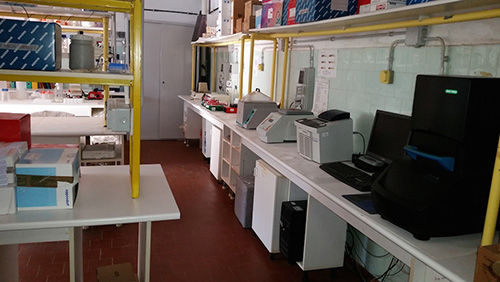
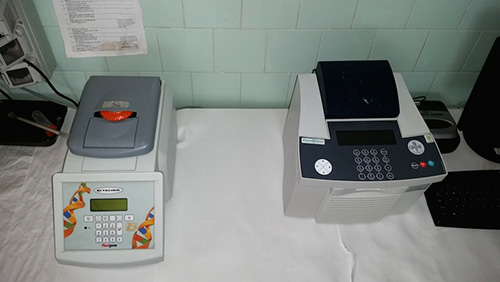
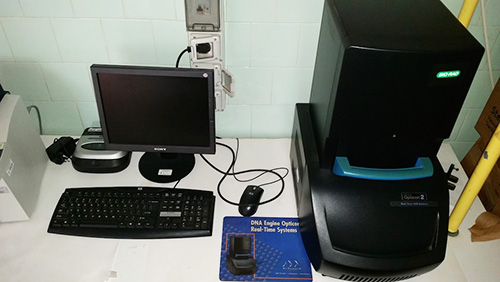
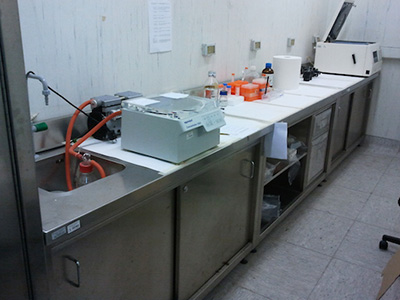
Stazione Zoologica Anton Dohrn
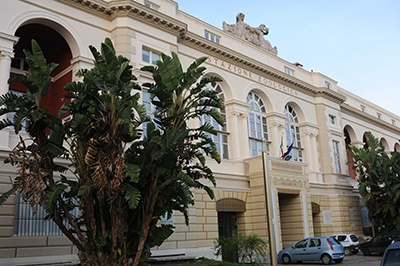
Secretariat of the President
Giovanna Di Gennaro, Office Responsible
Margherita Groeben
Gabriella Grossi
Secretariat of the Director
Daniela Consiglio, Office Responsible
Italia Canettieri
Silvia Chieffi
Rosanna Messina
Simona Sannola
Naples
Villa Comunale
80121 - Naples, Italy
Tel.: +39 081 5833111
Fax: +39 081 7641355
Secretariat: +39 081 5833218
e-mail: stazione.zoologica(at)szn.it
certified mail: ufficio.protocollo(at)cert.szn.it
Ischia
"Villa Dohrn"
Punta S. Pietro
80077 - Ischia, Naples, Italy
Tel. +39 081 5833521
Fax. +39 081 984201
e-mail: rosanna.messina(at)szn.it










